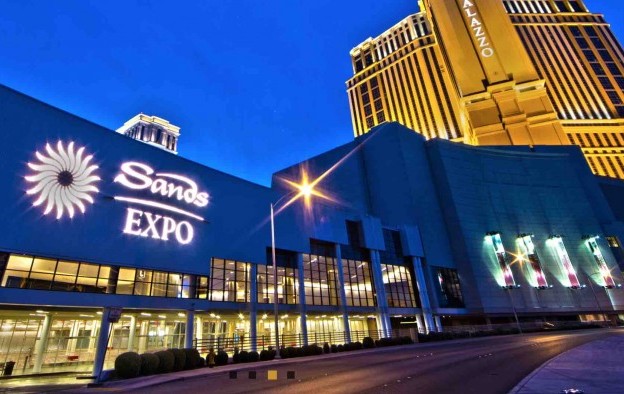Despite United States-based casino group Las Vegas Sands Corp (LVS) being in line to generate US$6.25 billion from the sale of its Las Vegas, Nevada assets, Fitch Ratings Inc said in a Thursday memo it viewed the disposal as a “slight credit negative”.
While the deal – announced on Wednesday – would provide Las Vegas Sands with additional liquidity and would improve its leverage on a net consolidated basis, there was “negatively,” a concern the sale “reduces Las Vegas Sands’ contingent liquidity via having an ability to encumber [offer as security to creditors] its Las Vegas assets,” said Fitch.
Las Vegas Sands is the parent of Macau casino operator Sands China Ltd, and of Marina Bay Sands Pte Ltd, promoter of the Marina Bay Sands casino resort in Singapore.
Moody’s Investors Service Inc said in a Thursday note on the sale, that it saw the Las Vegas disposal – which includes non-gaming assets, such as Sands Expo and Convention Center (pictured) – as “a modest credit positive”.
This was on the basis the deal would give the casino group “significant additional capital, further enhancing liquidity while providing flexibility to continue to reinvest in Macau and Singapore, as well as pursue additional growth opportunities and debt reduction”.
Moody’s added though, the transaction did not have an immediate positive impact on Las Vegas Sands’ ‘Baa3’ credit rating and ‘negative’ outlook assigned by the ratings agency.
This was because the gaming group’s operations “continue to be negatively impacted” by reduced visitor volumes and social distancing measures in its business markets, thus “constraining earnings” during a period that had seen “leverage remaining high and largely unchanged”.
Moody’s ‘Baa3’ notice is the lowest investment-grade rating for the financial institution’s long-term corporate obligation category, and considered subject to “moderate” credit risk.
Fitch in its memo affirmed a ‘BBB-’ notice – the lowest investment-grade definition – for long-term issuer default ratings relating respectively to Las Vegas Sands, Marina Bay Sands Pte Ltd, and Sands China.
Fitch also affirmed Las Vegas Sands’ and Sands China’s existing senior unsecured debt at ‘BBB-‘, and Marina Bay Sands’ senior secured credit facility at ‘BBB’. Fitch said the outlook on the group remained ‘negative’.
Fitch stated the Las Vegas sell-off “increases the gross leverage in near-to-medium term” for Las Vegas Sands, “marginally reduces diversification, and raises some uncertainty with respect to the ultimate use of proceeds”.
Possible investment in online gaming in North America has been mentioned by several investment analysts.
Brokerage Sanford C. Bernstein Ltd said in a Wednesday note that the sale of Las Vegas assets might aid the comeback of dividends for the parent firm.
Robert Goldstein, chairman and chief executive of Las Vegas Sands, had been quoted in a press release on Wednesday saying that the brand was still interested in “development opportunities domestically” in the U.S. But he had also added: “Asia remains the backbone of this company and our developments in Macau and Singapore are the centre of our attention.”







